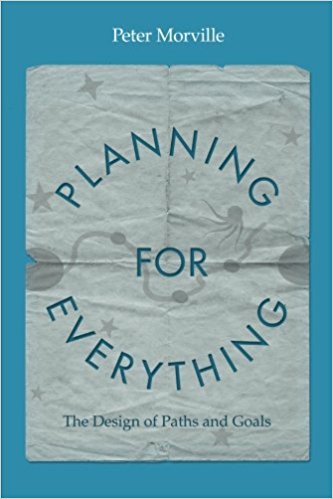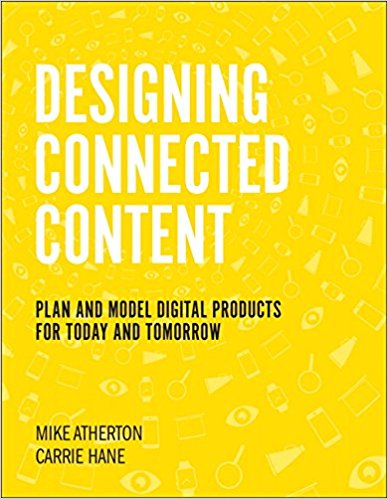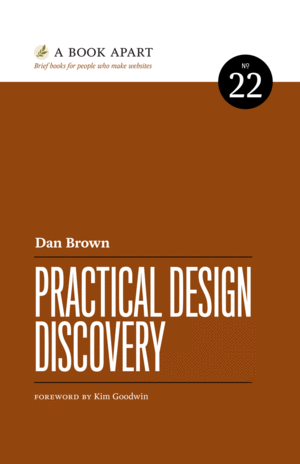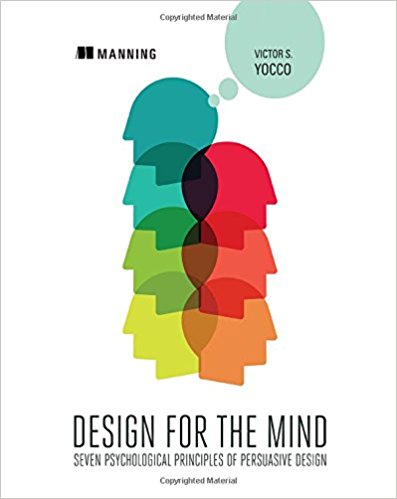The IA Summit is the leading conference for those who create and manage digital user interfaces and rich information environments. Each year, it features talks and workshops from some of the best in information architecture, UX, and content strategy.
This year’s schedule features experts such as Abby Covert, Dan Klyn, Jared Spool, and Peter Morville. The extraordinary lineup also provides a great list of recently published UX books. Check out one or more to get prepared for this year’s summit.
Save on your IA Summit registration today by using the discount code uxbooth.
Planning for Everything: The Design of Paths and Goals

This is the latest from Peter Morville, who also authored Information Architecture: For the Web and Beyond and Intertwingled: Information Changes Everything. The book focuses on planning as a skill and how everyone can improve, if they are ready to learn:
- The principles and practices of nonlinear planning.
- How to grow and sustain hope with willpower and waypower.
- When to pivot or persist with paths, goals, values, and metrics.
- How myths, memories, fears, and feelings shift the future.
- Why the plans of an octopus are the product of evolution.
- How artificial intelligence is poised to transform what we plan.
As the description states “If you hate planning, you’re doing it wrong.”
Designing Connected Content: Plan and Model Digital Products for Today and Tomorrow

In Designing Connected Content, Mike Atherton and Carrie Hane share an end-to-end process for building a structured content framework. Learn a design method that starts with content, not pixels. Understand the intersections of content strategy, content design, and content management and bring your product team closer together and encourage them to think content first. Learn how to:
- Model your content and its underlying subject domain.
- Design digital products that scale without getting messy.
- Bring a cross-functional team together to create content that can be efficiently managed and effectively delivered.
- Create a framework for tackling content overload, a multitude of devices, constantly changing design trends, and siloed content creation.
Design for Understanding
This book by Stephen Anderson and Karl Fast is one to look out for as its publication date isn’t set yet. We are surrounded by understanding problems through far more information than we can process. In short, we’re given information, but not understanding. Design for Understanding will look at various ways to help people make sense of confusing information. Bridging theory from cognitive sciences with dozens of practical examples, learn how to design rich, visual interactions that encourage people to play with and explore difficult concepts.
Practical Design Discovery

Dan Brown’s third book, after Communicating Design and Designing Together, maintains the design theme. Design discovery is crucial to a project’s success and in uniting a design team toward a common goal. Explore the role of discovery in product design, how to use and structure techniques for success, and how to synthesize and document learning. Receive a flexible framework for planning and practicing discovery activities, and how to set every design endeavor on the right path.
Design for the Mind: Seven Psychological Principles of Persuasive Design

This book teaches web designers and developers how to create sites and applications that appeal to our innate natural responses as humans. Author Victor Yocco, a researcher on psychology and communication, introduces the most immediately relevant and applicable psychological concepts, breaks down each theory into easily-digested principles, then shows how they can be used to inform better design.
Information architecture is an often misunderstood job title. Are they designers? developers? managers? All of the above? In this article we'll discuss what information architecture is, why it's related to usability, and what are the common tools/programs used in information architecture.